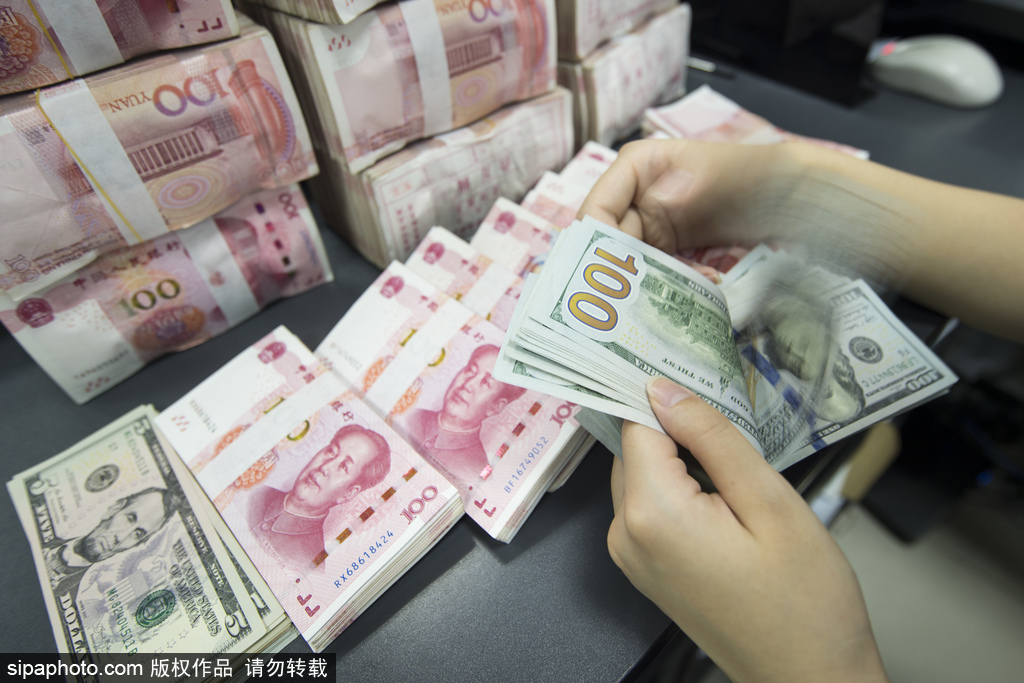Forex swaps to reduce depreciation pressure on Chinese currency


Foreign exchange swaps are expected to ease depreciation pressure on the yuan and bolster liquidity amid a raft of measures being considered by China and other global counterparts to ensure financial stability, analysts said on Monday.
Swap lines have already been set up among the world's six major central banks-the US Federal Reserve, the Bank of Canada, the Bank of England, the Bank of Japan, the European Central Bank, and the Swiss National Bank. It is a coordinated action to further enhance the provision of US dollar liquidity in the global financial market and ease funding strains.
The People's Bank of China, the Chinese central bank, has not yet joined the dollar swap lines. At a PBOC media conference on Sunday, some journalists asked whether the central bank would consider such an arrangement in the future, but officials did not provide any clear answers.
However, the PBOC has exchanged opinion on monetary policy with the US Federal Reserve, since the early stages of the novel coronavirus outbreak. It will continually support multilateral organizations, such as G20 and the International Monetary Fund, to strengthen international coordination on macro policies and financial relief, said Chen Yulu, vice-governor of the PBOC.
Economists have termed the foreign exchange swaps as the most important arrangement till now to tame market turmoil, even as global financial conditions are tightening. The swap lines, a wide cooperative action among major central banks, were seen as a backstop at the very top or core of the international monetary system.
The return of swap lines, which had last sprung up during the 2008 financial crisis, will inject dollar liquidity, which can slow down the rise, or push down the dollar index. Thus, the depreciation pressure on the yuan versus the greenback will be eased, said Xie Yaxuan, chief analyst at China Merchants Securities.
From Monday to at least the end of April, six central banks under the swap mechanism agreed to increase the frequency of seven-day maturity operations from weekly to daily. The swap lines are standing facilities that serve as an important liquidity backstop, according to a statement on the Fed's website.
The swap lines could also help mitigate the effects of such strains on the supply of credit to households and businesses, both domestically and abroad, the US central bank said.
Financial stress has fueled investors' hunt for safety assets as the coronavirus outbreak has disrupted the global capital market. Panic buying of US dollars as a reserve currency has sharply lifted the dollar index and the cost of borrowing dollars for other currencies in foreign-exchange swap markets has hit levels not seen since the 2008 Global Financial Crisis.
Against the stronger US dollar, the euro dropped 6.6 percent from March 10 to Thursday, and the pound sterling weakened by 12.5 percent toward its lowest level since 1985, surpassing the lows seen during the historic Brexit vote in June 2016. Currencies in the emerging market declined by 3 percent, while the yuan depreciated by 2 percent, according to data from the PBOC.
Xuan Changneng, deputy head of the State Administration of Foreign Exchange, said on Sunday that the liquidity crunch of US-dollar denominated assets in the global market has led to the soaring US index, which is a technical rise rather than an economic fundamentals-driven surge.
"The yuan has no significant depreciation basis," he said. A more flexible exchange rate of the yuan will better prevent cross-border capital flow risks, he said.
Li Qilin, chief analyst at Yuekai Securities, said the dollar liquidity stress has a limited impact on China's financial market and the risks are under control, although the yields on some interest rate bonds sharply rose last week, given the weak risk appetite.
"Central banks in the Asia-Pacific region have followed or will follow the Fed's move by ensuring that they have done what they can to add liquidity to the financial system and work to avoid the grinding to a halt of funding markets," said Daniel Gerard, senior multi asset strategist at State Street Global Markets.
"If banks can show that their actions will restore lending and the mechanics of banking, then investors can work within the framework of markets to find a floor to asset values."
- China to ensure steady economic, social progress through refined mechanism for stability in six key areas
- China's financial markets pass another stress test
- Market fundamentals in focus on opening-up
- PBOC to focus on growth and yuan stability
- PBOC moves closer to the launch of DC/EP, its own digital currency




































